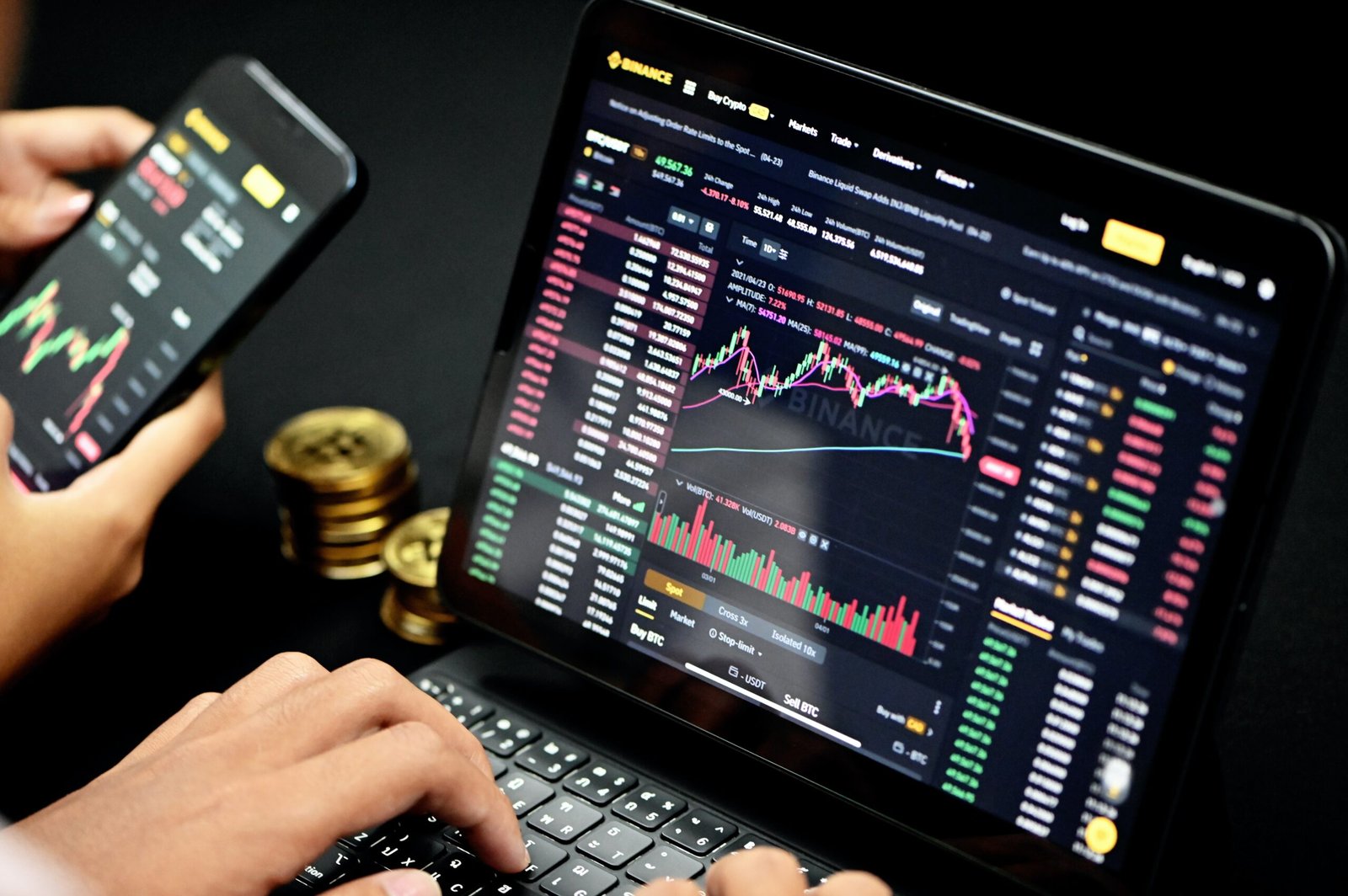The cryptocurrency market has evolved significantly over the past decade, with bitcoin derivatives becoming one of the most sophisticated and profitable trading instruments available today. A reliable bitcoin derivatives trading platform serves as the gateway for both institutional and retail traders to access complex financial products like futures, options, and perpetual swaps. These platforms have revolutionized how traders approach risk management, portfolio hedging, and profit maximization in the volatile crypto market.
Choosing the right bitcoin derivatives trading platform can make the difference between successful trading outcomes and significant losses. With billions of dollars in daily trading volume across various derivatives products, these platforms offer unparalleled opportunities for experienced traders to leverage their positions and implement sophisticated trading strategies. The best platforms combine cutting-edge technology, robust security measures, and comprehensive educational resources to support traders at every level of expertise.
What Are Bitcoin Derivatives and Why They Matter
Bitcoin derivatives are financial contracts that derive their value from the underlying Bitcoin asset without requiring direct ownership of the cryptocurrency itself. These instruments have become essential tools for professional traders, institutional investors, and sophisticated retail traders who want to hedge positions, speculate on price movements, or amplify their trading capital through leverage.
Types of Bitcoin Derivatives Available
The modern bitcoin derivatives trading platform typically offers several types of derivative products, each serving different trading purposes and risk profiles. Bitcoin futures contracts allow traders to agree on buying or selling Bitcoin at a predetermined price on a specific future date, making them ideal for hedging against price volatility or speculating on long-term price movements.
Perpetual swaps have emerged as one of the most popular derivative products, offering the benefits of futures contracts without expiration dates. These instruments track the spot price of Bitcoin through funding rate mechanisms, allowing traders to maintain positions indefinitely while benefiting from leverage. Options contracts provide traders with the right, but not the obligation, to buy or sell Bitcoin at specific strike prices, offering sophisticated risk management capabilities for portfolio optimization.
The Growing Importance of Derivatives Trading
The derivatives market has grown exponentially, with daily trading volumes often exceeding spot market volumes by significant margins. Professional trading firms, hedge funds, and institutional investors rely heavily on derivatives for risk management, arbitrage opportunities, and capital efficiency. A sophisticated bitcoin derivatives trading platform enables these market participants to implement complex trading strategies that would be impossible in traditional spot markets.
Key Features of Top Bitcoin Derivatives Trading Platforms
Advanced Trading Engine and Order Types
The foundation of any exceptional bitcoin derivatives trading platform lies in its trading engine’s performance and reliability. Leading platforms utilize cutting-edge matching engines capable of processing hundreds of thousands of orders per second with minimal latency. These systems support various order types including market orders, limit orders, stop-loss orders, and advanced algorithmic trading features.
Professional traders require sophisticated order management tools such as bracket orders, trailing stops, and conditional orders that execute based on complex market conditions. The best platforms integrate these features seamlessly while maintaining system stability during high-volatility periods when trading activity peaks dramatically.
Comprehensive Risk Management Tools
Risk management capabilities distinguish professional-grade platforms from basic trading interfaces. Advanced bitcoin derivatives trading platform solutions provide real-time portfolio analytics, position sizing calculators, and automated risk controls that prevent excessive leverage or margin calls. These tools help traders maintain disciplined approaches to position management while maximizing capital efficiency.
Margin requirements, liquidation mechanisms, and cross-margin capabilities vary significantly between platforms. Leading providers offer flexible margin systems that allow traders to optimize their capital allocation across multiple positions while maintaining appropriate risk levels for their trading strategies.
Security Infrastructure and Regulatory Compliance
Security remains paramount when selecting a bitcoin derivatives trading platform, given the substantial amounts of capital involved in derivatives trading. Top-tier platforms implement multi-layer security protocols including cold storage for customer funds, multi-signature wallet systems, and regular security audits by independent third-party firms.
Regulatory compliance has become increasingly important as institutional adoption grows. Platforms operating under proper regulatory frameworks provide additional security and legitimacy, particularly for institutional clients who require compliance with specific regulatory standards for their trading activities.
Comparing Leading Bitcoin Derivatives Trading Platforms

Institutional-Grade Platforms
Professional trading firms and institutional investors typically gravitate toward platforms that offer institutional-grade features and support. These bitcoin derivatives trading platform solutions provide dedicated account management, customized trading interfaces, and direct market access capabilities that meet the demanding requirements of high-volume trading operations.
Institutional platforms often feature advanced API integration, allowing algorithmic trading strategies and automated portfolio management systems. The ability to execute large orders with minimal market impact through sophisticated order routing algorithms becomes crucial for institutional trading success.
Retail-Focused Trading Platforms
Retail traders require different features and support systems compared to institutional clients. User-friendly interfaces, educational resources, and lower minimum trading requirements make certain platforms more accessible to individual traders entering the derivatives market for the first time.
The best retail-oriented bitcoin derivatives trading platform options balance simplicity with functionality, offering powerful trading tools without overwhelming novice users. These platforms typically provide extensive educational materials, demo trading accounts, and customer support specifically designed for retail trader needs.
Regional Considerations and Access
Geographic restrictions and regulatory differences create varying platform availability across different regions. Traders must consider local regulations, tax implications, and platform accessibility when selecting their preferred bitcoin derivatives trading platform. Some platforms focus on specific geographic markets while others offer global access with appropriate licensing and compliance measures.
Trading Strategies for Bitcoin Derivatives
Hedging and Risk Management Strategies
Professional traders utilize bitcoin derivatives primarily for hedging existing cryptocurrency positions against adverse price movements. A well-chosen bitcoin derivatives trading platform enables sophisticated hedging strategies that protect portfolio value during market downturns while allowing participation in upward price movements.
Delta hedging, pairs trading, and basis trading represent common strategies employed by experienced derivatives traders. These approaches require platforms with robust analytical tools and real-time market data to execute effectively across multiple trading instruments simultaneously.
Speculation and Leverage Trading
Leverage trading through derivatives allows traders to amplify their market exposure beyond their available capital. However, this increased potential for profits comes with proportionally higher risks that require careful position management and risk controls.
Successful leverage trading on a bitcoin derivatives trading platform demands thorough understanding of margin requirements, funding rates, and liquidation mechanisms. Traders must develop disciplined approaches to position sizing and risk management to avoid catastrophic losses that can occur with excessive leverage.
Arbitrage Opportunities
Price discrepancies between spot markets and derivatives markets create arbitrage opportunities for sophisticated traders with access to multiple platforms and sufficient capital. These strategies require advanced trading systems and deep market knowledge to execute profitably while managing the associated risks.
Technical Analysis and Market Research Tools
Charting and Analysis Features
Advanced charting capabilities form the backbone of successful derivatives trading. Leading bitcoin derivatives trading platform providers integrate comprehensive technical analysis tools including multiple timeframe charts, extensive indicator libraries, and custom drawing tools for market analysis.
Professional traders rely on these analytical tools to identify entry and exit points, trend analysis, and market sentiment indicators. The ability to overlay multiple data sets and customize chart displays according to individual trading preferences significantly impacts trading effectiveness.
Market Data and News Integration
Real-time market data, news feeds, and economic calendars provide essential information for making informed trading decisions. The best platforms aggregate multiple data sources and present information in actionable formats that support rapid decision-making during volatile market conditions.
Integration with external research providers, sentiment analysis tools, and on-chain analytics gives traders comprehensive market insights beyond basic price and volume data available on standard platforms.
Fee Structures and Cost Considerations
Trading Fees and Commission Structures
Fee structures vary significantly across different bitcoin derivatives trading platform options, impacting overall trading profitability especially for high-frequency trading strategies. Maker-taker fee models, volume-based discounts, and promotional fee structures all influence the total cost of trading operations.
Understanding the complete fee structure including trading commissions, funding rates, withdrawal fees, and any additional charges helps traders calculate their break-even points and optimize their trading strategies accordingly.
Hidden Costs and Additional Charges
Beyond standard trading fees, traders must consider funding costs, overnight financing charges, and premium charges for advanced platform features. These additional costs can significantly impact trading profitability, particularly for strategies involving long-term position holding.
Premium platform tiers often provide reduced fees, enhanced features, and priority customer support that may justify higher subscription costs for active traders. Calculating the total cost of ownership helps determine the most cost-effective platform choice for specific trading requirements.
Security Best Practices for Derivatives Trading
Platform Security Features
Security infrastructure varies dramatically between different bitcoin derivatives trading platform providers. Two-factor authentication, withdrawal whitelisting, and API security controls represent basic security measures that all reputable platforms should provide as standard features.
Advanced security features such as hardware security modules, cold storage systems, and insurance coverage for customer funds provide additional protection against security breaches and operational risks that could result in fund losses.
Personal Security Measures
Traders bear responsibility for implementing personal security measures including strong password policies, secure internet connections, and regular account monitoring. Using dedicated devices and network connections for trading activities helps minimize exposure to security risks.
Regular security audits of personal trading setups, including software updates and malware scanning, form essential components of comprehensive security strategies for derivatives trading activities.
Also Read: Bitcoin Institutional Investment News Latest Updates & Market Trends 2025
Mobile Trading and Platform Accessibility

Mobile Application Features
Modern trading requires accessibility across multiple devices and platforms. Leading bitcoin derivatives trading platform providers offer comprehensive mobile applications that maintain full trading functionality while optimizing interfaces for mobile device constraints.
Mobile trading applications must provide real-time market data, order management capabilities, and portfolio monitoring tools that enable effective trading management regardless of location or device availability.
Cross-Platform Synchronization
Seamless synchronization between desktop, mobile, and web-based trading interfaces ensures consistent trading experiences across all access methods. This functionality becomes particularly important for active traders who need to monitor and manage positions throughout the day using various devices.
Customer Support and Educational Resources
Support Infrastructure
Professional derivatives trading requires reliable customer support systems capable of addressing technical issues, account problems, and trading questions promptly. The best bitcoin derivatives trading platform providers offer multiple support channels including live chat, phone support, and dedicated account management for institutional clients.
Response times, support quality, and availability during different time zones significantly impact the overall trading experience, particularly during high-volatility periods when technical issues could result in significant financial losses.
Educational and Training Materials
Comprehensive educational resources help traders understand complex derivatives products and develop effective trading strategies. Leading platforms provide webinars, tutorials, trading guides, and market analysis content that supports ongoing trader education and skill development.
Demo trading accounts and paper trading features allow new derivatives traders to practice strategies and familiarize themselves with platform functionality without risking real capital during the learning process.
Future Trends in Bitcoin Derivatives Trading
Technology Evolution
Artificial intelligence, machine learning, and advanced algorithmic trading continue transforming how traders interact with derivatives markets. Future bitcoin derivatives trading platform developments will likely incorporate more sophisticated automation, predictive analytics, and personalized trading assistance.
Blockchain technology integration, decentralized derivatives protocols, and cross-chain compatibility represent emerging trends that could significantly impact traditional centralized trading platform models.
Regulatory Development
Evolving regulatory frameworks across different jurisdictions will continue shaping the derivatives trading landscape. Increased regulatory clarity and standardization may lead to greater institutional adoption and more sophisticated product offerings.
Compliance requirements, reporting standards, and consumer protection measures will likely become more stringent, potentially favoring established platforms with robust compliance infrastructures over smaller, less regulated alternatives.
Conclusion
Selecting the optimal bitcoin derivatives trading platform requires careful consideration of multiple factors including security, functionality, fees, and regulatory compliance. The best platforms combine institutional-grade security with user-friendly interfaces, comprehensive educational resources, and competitive fee structures that support profitable trading operations.
Whether you’re an institutional trader seeking advanced algorithmic trading capabilities or a retail trader exploring derivatives for the first time, the right bitcoin derivatives trading platform will provide the tools, security, and support necessary for successful trading outcomes. Take time to evaluate different platform options, test demo accounts, and ensure the chosen platform aligns with your specific trading requirements and risk tolerance.


